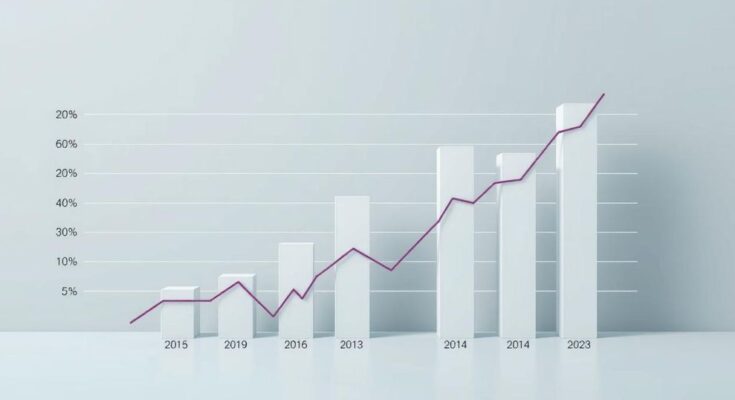Brazil’s economic growth is forecasted to slow to 0.5% in the fourth quarter of last year, down from 0.9% in Q3. Factors include a decrease in private consumption and investment. Analysts predict a yearly growth of 4.1% for 2023, influenced by robust government consumption, while foreign direct investment fell short of the current account deficit. Future GDP data is expected to confirm stronger-than-anticipated growth, amidst ongoing fiscal caution from the government.
According to a Reuters poll, Brazil’s economy is expected to experience deceleration in the final quarter of last year, primarily due to reduced growth in private consumption and investment. The forecast indicates a 0.5% expansion from October to December, a decrease from the 0.9% growth observed in the third quarter. Economists estimate an annual growth rate of 4.1% based on 21 responses collected from February 26 to March 3.
J.P. Morgan analysts attributed this slowdown to the decline in private consumption and investments, marking the first decrease in over a year. Despite these aspects, solid government consumption and positive contributions from net exports and inventories are expected to support a favorable growth rate. However, increasing fiscal concerns related to government reliance on spending have raised market selloff pressures.
Further, foreign direct investment did not outpace the current account deficit last year, constraining Brazil’s economic expansion. LCA 4intelligence’s Bruno Imazumi projected growth in services by 0.4%, industry by 0.1%, and agriculture by 1.8%. The services sector is anticipated to show strong performance in areas such as financial intermediation and insurance.
Overall, GDP data scheduled for release on Friday is expected to confirm that Brazil’s economy concluded 2024 stronger than previously projected. Analysts have adjusted their growth forecasts upwards throughout the previous year, attributed to a robust job market and increased social spending, effectively counterbalancing the adverse effects of high interest rates.
As of January, a Reuters poll estimated annual growth for 2024 at 3.4%, significantly higher than the 1.6% forecast at the beginning of last year. However, the Brazilian government revised its forecast for 2025 down to 2.3% amid ongoing monetary tightening, also adjusting inflation expectations upward. Despite this, a senior government official recently stated that no extraordinary measures to stimulate growth would be implemented, affirming the government’s commitment to Brazil’s fiscal structure.
In conclusion, Brazil’s economic growth is projected to moderate due to declines in private consumption and investment. However, effective government spending and a strong job market may support overall growth. Future GDP data will offer valuable insights, while recent revisions in growth forecasts indicate a resilient economy despite challenges. The government’s commitment to fiscal discipline remains a priority in navigating economic uncertainties.
Original Source: money.usnews.com




